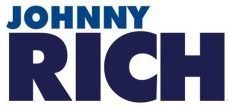The Education Select Committee has launched an inquiry into CEIAG – Careers Education, Information, Advice and Guidance – and issued a call for evidence to which I submitted a few thoughts.
Among the many points I made, there were two that I thought might be worth blogging about. Firstly what do we actually mean by CEIAG? Secondly, what does that tell us about professional careers practitioners?
What is CEIAG?
It’s worth drawing a distinction between the components of CEIAG and why it is necessary to consider them separately as well as together.
Careers education is education about careers, ie. learning about the different ways people make a living, what those different careers involve and some of the pathways that people take into and through careers. Ideally, careers education also involves learning about employability (those attributes that mean an employee can add value to an employer), how to acquire it and how to demonstrate it to a potential employer.
Careers information is factual. It may be data (for example, labour market information) or it may be other factual information, but generally, it is largely uncontentious (if soundly derived) and lacks context. One analogy I often use is to say that if I say “beer in this pub is £2 a pint”, I am providing you with information. In isolation, information is not very helpful to the person at the receiving end.
Careers advice puts information into context, making it potentially useful to any person who happens to receive it. To use the same analogy, it would be advice to say that “the average price of beer is £2.40/pint, so this pub is relatively cheap”. Good advice is true in a general sense, even though it is insensitive to any individual’s perspective.
Careers guidance, however, is personalised and starts with the individual and their hopes, opportunities and needs. For example, it is guidance to ask, “Are you thirsty? Do you like beer? How much can you afford? What are your alternatives?”
I find this a useful distinction because it helps us understand how best to deliver the component parts of CEIAG. Careers support should not stop at CEIAG though. Beyond those components we should not overlook the potential role of mentoring, behavioural/mindset support and practical help (such as funding for trips and open days or clothes appropriate for work experience, etc).
Careers physicians
Of the four components of CEIAG, guidance is the most useful to the individual, but the hardest to deliver and largely redundant without the other three. Guidance requires knowledge, skills and contact (albeit sometimes virtually) with the person being guided. A careers guidance practitioner bears enormous responsibility because it is their role to draw aspirations out of their client and frame them in the context of opportunities.
I often find myself drawing comparisons between professional careers practitioners and doctors.
A doctor uses their training, experience and expertise to diagnose someone’s needs and prescribe treatment with the selfless aim of relieving suffering and improving the patient’s quality of life.
A careers practitioner uses their training, experience and expertise to diagnose someone’s needs and provide guidance with the selfless aim of giving their client self-agency and improving their quality of life.
Like medicine, careers guidance has become an evidence-based, theory-driven profession equipped with sophisticated tools and, given the almost Hippocratic responsibility, careers guidance should never be entrusted to anyone who is not adequately trained to do it responsibly, knowledgeably and professionally. The Government should require anyone working in a publicly funded role as a careers practitioner to be on the CDI Professional Register.
Speaking plainly
Another parallel with medicine is that careers policy seems to get bogged down in jargon easily. Many professions do this – law, academia, the armed forces – develop a jargon to signal to those on the outside that there is a guarded gateway through which only the cognoscenti may pass.
In the case of careers practitioners, it may be something to do with a defensiveness against the kind of dismissive attitude that they often face and which I’ve written about before.
So, in my submission to the Select Committee, I made a point of writing plainly.
The problem of inadequate CEIAG contributes to huge policy issues: low productivity, social and regional inequality, and the opportunities of individuals to live fulfilled lives. Yet the solutions – or at least the principles behind them are not that complex and don’t need to be wrapped in gate-keeping language.
After all, the MPs on the Committee – boundless in their wisdom though I’m sure they are – are not inside the gateway.
Nor am I. I have no qualifications in careers practice and, by my own strictures, I should definitely not be allowed to deliver careers guidance. However, I have worked in awe alongside careers professionals; I have delivered careers education, information and advice for many years; and I have read and researched widely.
Some of the most useful research – for me – has not been the research on careers itself, but the wealth of behavioural science research that has been published in recent decades. This developing understanding gives us a fresh perspective on how humans do that difficult thing of making decisions. By understanding that, we get a whole new window on how to improve CEIAG to promote informed choices.
If anything I’ve written here has piqued your interest, I do hope you’ll feel it’s worth reading my submission in full – I will post it here when the Committee has reviewed it. (Until then, I am not supposed to put it in the public domain.)
UPDATE 30/6/2022
The Select Committee has now published the evidence it received and so, I can now share my submission.


Thanks!